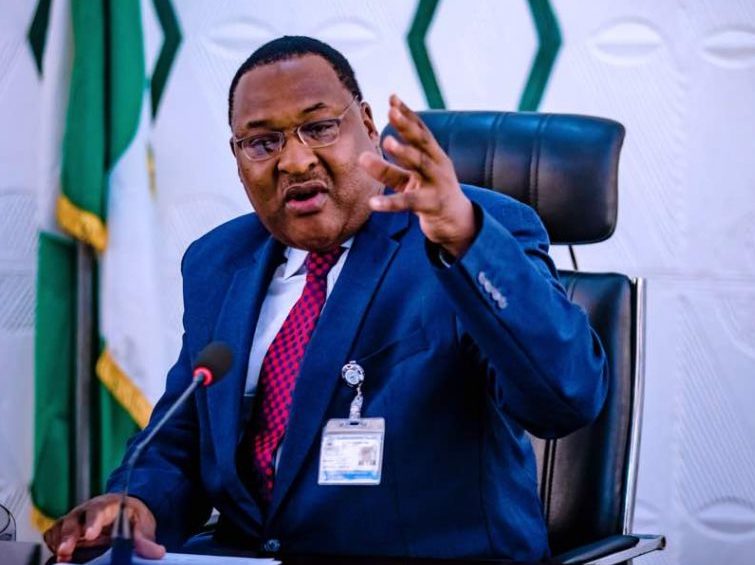
The Executive Secretary of Nigerian Shippers’ Council, Hassan Bello, has described the manual and physical examination of cargoes at the nation’s seaports by the Nigeria Customs Service as “laborious and time wasting”.
In 2013, Bello had tagged the manual cargo inspection process “archaic and near primitive”.
Speaking at a webinar organised by the NSC in Lagos on Tuesday, Bello also charged the Customs authorities to reduce delays in the cargo clearance process by dismantling roadblocks mounted by its officials at the port gates and port access roads.
He said, “We believe that the procedure of Customs could be abridged to make sure that things are done fast and there are no roadblocks outside after the containers have been released. Very soon, we believe scanners will be deployed by Customs so that we can reduce 100 percent physical examination, which is laborious and time wasting.”
The NSC boss also said that the Council, in collaboration with other sister agencies, has developed a three point agenda of ensuring the realization of a virtual port system and multimodal transportation to enhance efficiency at the port.
“Right now, our three point agenda together with all the agencies of maritime sector is virtual port. It is very important that by first or second quarter of next year, 98 percent of transactions are online. If we do that, it will mean that we are making our port competitive, eliminating inefficiency and delay and most importantly, we are eliminating corruption because human contacts is the reason we see so much corruption at the port. We should have a virtual port and adopt a paperless base transaction.
“A committee has been set up by the CEOs committee whereby we look into how to ensure that there is a virtual port. The second point agenda we have started is multimodal approach in transportation. We cannot rely on the road alone. The council has already brokered the standard operating procedure between the Nigeria Railway Corporation and the terminals and we are now having multiple trips by rail and with every trip by rail, we knock out 38 trucks on the road.
“We are also looking at delivery of cargo by barges through inland waters. So we hope all of these will be a veritable source of transportation and when NPA comes up with the electronic call up system, I assure you we will not be having the ugly gridlock we have today,” he said.
Also speaking at the webinar, the Director General, Lagos Chamber of Commerce and Industry (LCCI) Muda Yusuf, urged the Federal Government to introduce reforms that facilitate trade at the port.
Yusuf identified dilapidated port access roads, lack of functional scanners and frequent breakdown of Customs server as challenges that have continued to cause setback to trade facilitation.
He said, “Our trade policies need to be reviewed. For example, the border closure policy is impacting negatively on legitimate trade. Our foreign exchange policy is critical for trade facilitation and leaving it for Central Bank alone was not good and so the need to get things right. Tariffs should also be at a level that will be easy to enforce.
“Lack of adequate infrastructure is also another issue as the country still does physical examination of cargoes. How can we, as the largest country in Africa, still rely on physical examination of cargo at this age? It is very embarrassing. These things are not rocket science. They can be done. We also have frequent breakdown of servers and poor access roads to the port all these inhibits trade facilitation and should be tackled.”
Yusuf said there is need for agencies of government involved in inspection of cargoes at the port to be flexible.
“There may be need to drop some requirements to expedite speedy clearance of cargo and simplification of goods declaration For example, acceptance of copies, paper or electronic copies of required documentation. There may be request for signal documents if there is need to do and low risk consignment should be cleared expeditiously while high risk cargoes may attract a more rigorous scrutiny,” he said.